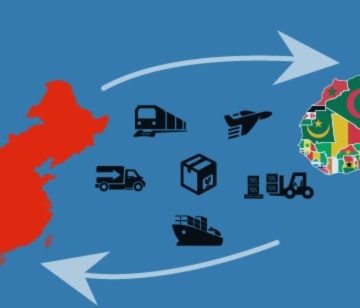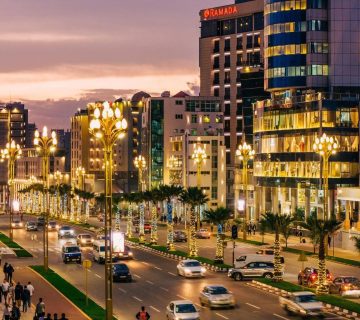The Greater Horn of Africa region is home to roughly 120 – 140 million Roman Catholics with the Democratic Republic of Congo (DRC), Uganda, Tanzania and Kenya boasting some of the largest catholic populations on the African continent. Besides offering spiritual guidance, the pope equally plays a significant political role in the lives of both the Catholic faithfuls and non-Catholics. Since he possesses the ability to leverage soft power to influence various political decisions, the Pope has a unique capacity to mitigate conflicts, to facilitate peacebuilding efforts and to bring broader attention to social issues, which positions him as an appreciated partner for both local and foreign actors.
The historical Papal Engagement in Africa
Since its inception, the Roman-Catholic Church had predominantly been a Euro-centered institution, while it was exported to the rest of the world through colonialism and imperialism of European states, often sponsored by the Pope being a political actor in Europe. After the end of the Papal States in 1870, the papacy concentrated its focus on playing a moral and spiritual role worldwide, culminating in the Second Vatican Council (1962 – 1965) which had a profound and multifaceted impact on the independent evolvement of the Catholic Church in Africa.
In the post-independence era the local African Churches in East Africa eased social conditions and provided shelter and help during conflict and civil wars, while Catholic leaders like Cardinal Laurent Monsengwo Pasinya (DRC) became vocal advocates for justice, human rights and democratic governance during the democratization wave in the late 90‘s. These efforts were supported by the papal soft power with for example the extension of papal visits to Africa and in 2009, when the late Pope Benedict XVI. invited the African bishops to Rome for the Second Special Assembly of the Synod of Bishops for Africa under the theme “The Church in Africa in Service to Reconciliation, Justice and Peace“.
The Papal Soft Power
The Pope officially engages in political issues through the Holy See, which is the central governing body of the Roman Catholic Church. The Holy See is recognized as a sovereign subject of international law, separate from the Vatican City State, which is its territorial base. The Holy See has official relations with most countries (Christian and non-Christian), and is Permanent Observer of the UN. The difference between the pope and a classical head of state is that the pope wields not only political and diplomatic influence but also spiritual authority over a global religious community of 1.4 billion people.
The pope can exert his soft power mainly through papal publications, speeches, visits and leveraging on the Holy See’s Apostolic Nuncios. Most Popes are on record for exerting soft power through papal visits and speeches, bringing a given key issue to global attention. Notable visits include Pope Francis first official visit to the Italian island of Lampedusa in 2013, which was directly mirrored in the political world. By mourning migrants lost at sea and condemning the “globalization of indifference“, he brought the fate of the migrants to global attention, resulting in increased public sentiment and awareness and political responses from both Europe and Africa. Similarly, Pope Francis made several visits to the Horn region including South Sudan, Kenya and the DRC, where he emphasized peace-building and reconciliation efforts, engaged with leader of other religions to diminish the justifications for interfaith hostility and to contribute to social cohesion and echoed the call of Africans for economic global justice and the right of self-determination.
Besides the papal visits, several popes leveraged on their soft power by addressing key issues through papal publications and encyclical letters such as Rerum Novarum by Pope Leo XIII addressing worker’s rights and social justice in 1891 or Laudato Si by Pope Francis on environmental protection in 2015. In combination with a speech given before the United Nations General Assembly in 2015, Pope Francis‘ efforts had a direct and profound impact on the discussions and the outcome of the 2015 COP in Paris, as well as an increase in efforts to protect the environment afterwards.
Practical Application
In regions plagued by conflicts, the pope can exercise his soft power by offering to serve as mediator in war-torn countries as the papacy holds a unique moral authority that can be used to address and mitigate violence and conflicts. As a consequence, the pope can leverage his influence as a neutral actor to host the different warring factions for peace talks at the Vatican, as happened in 2023 when Pope Francis welcomed government and opposition parties from South Sudan.
Furthermore, the Pope utilizes his apostolic Nuncios accredited to the various countries in the region to push for peace talks. As a political institution, the Holy See is represented through Apostolic Nuncios in 183 countries and organizations, which may serve as mediators in conflicts by either negotiating directly with the parties as in South Sudan or indirectly by pacifying the public. This unique status is underlined by some Nuncios becoming automatically the dean of the diplomatic corps in a state, being a symbolic and representative leader and advocate of the diplomats.
Political Implications
The Horn Region, and Africa in general, are facing complex and interrelated challenges in the political, economic and social spheres. While the Pope may not posses the capacity to resolve these issues directly, he can leverage his soft power and symbolic authority to address them and contribute to their mitigation and facilitation. Through diplomatic engagement, moral leadership, and collaboration with other religious leaders and states, he can exert significant political influence, particularly in contexts where moral authority and dialogue may significantly contribute to conflict resolution and nation-building.
Cooperation with the papacy offers opportunities for both leaders in Europe and the Horn Region. Given that religion permeates all levels of society and may address the fundamental needs of the population, the Pope emerges as a significant partner for local actors, while the local Churches can, for example in Kenya, complement state efforts to provide services such as education and health care. For European leaders, the Church can serve through its moral authority and transnational networks as a bridge-builder, facilitating deeper engagement in the Horn Region.
Jakob Dehner is a Research Intern at the Horn Institute.
Photo Credits: The Vatican



